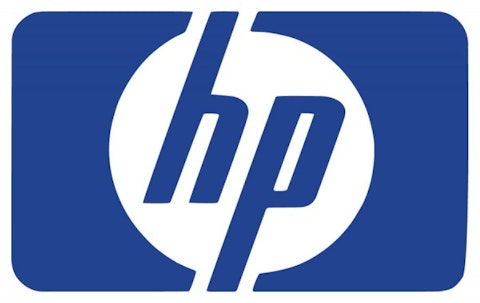For decades, PC makers had little choice but to succumb to the Microsoft Corporation (NASDAQ:MSFT) and Intel Corporation (NASDAQ:INTC) hegemony known as Wintel. The software giant and chip maker both rose to ubiquity together, enjoying the most valuable roles in the segmented PC value chain. The vast majority of computers ran Windows and were powered by Intel processors during the rise of the PC.
However, one PC maker has had enough: Hewlett-Packard Company (NYSE:HPQ) .
HP has been in turmoil for years. Mark Hurd’s controversial ouster in 2011 also came at a time when the broader computing industry was at an inflection point. Apple Inc. (NASDAQ:AAPL) had launched the iPad just a year prior, jump-starting the tablet renaissance. Leo Apotheker’s reign didn’t last long, and current CEO Meg Whitman’s turnaround is starting to take shape.
That turnaround is very much hinged on a broader approach than Hewlett-Packard Company (NYSE:HPQ) has historically implemented, one that acknowledges the shift away from Microsoft Corporation (NASDAQ:MSFT) and Intel Corporation (NASDAQ:INTC) in favor of iOS, Google Inc (NASDAQ:GOOG) Android, and ARM Holdings plc (NASDAQ:ARMH)-based chips. On the last earnings conference call, Whitman made it clear that HP is intent on “using multiple operating systems, multiple architectures, and multiple form factors” going forward.
Whereas once Hewlett-Packard Company (NYSE:HPQ)’s PC portfolio were all Windows PCs with Intel inside, HP has now broadened its horizons and is embracing Google Inc (NASDAQ:GOOG)’s vision of the future. HP released its first Chromebook earlier this year, followed almost immediately by a Slate 7 Android tablet reminiscent of Google’s Nexus 7. The Android-powered SlateBook x2 convertible was just announced, which sports an NVIDIA Corporation (NASDAQ:NVDA) Tegra 4 processor. Google Inc (NASDAQ:GOOG) is uprooting many of Microsoft Corporation (NASDAQ:MSFT)’s core businesses, and Hewlett-Packard Company (NYSE:HPQ) wants in.
On the server side, HP’s power-efficient Moonshot system that boasts 89% energy savings use ARM Holdings plc (NASDAQ:ARMH)-based chips instead of Intel silicon. The company makes it clear that this isn’t just an “evolutionary” improvement — this could be revolutionary.
HP is now taking something of a “shotgun” approach, trying everything to see what sticks. That broad strategy is similar to what Samsung has done in mobile, testing every imaginable form factor and price point. If Microsoft Corporation (NASDAQ:MSFT) and Intel Corporation (NASDAQ:INTC) fail to gain traction in the mobile future, Hewlett-Packard Company (NYSE:HPQ) wants to hedge its bets.
The article Hewlett-Packard Is Sick of Wintel originally appeared on Fool.com.
Fool contributor Evan Niu, CFA, owns shares of Apple Inc. (NASDAQ:AAPL). The Motley Fool recommends Apple Inc. (NASDAQ:AAPL), Google, Intel Corporation (NASDAQ:INTC), and NVIDIA Corporation (NASDAQ:NVDA) and owns shares of Apple Inc. (NASDAQ:AAPL), Google Inc (NASDAQ:GOOG), Intel, and Microsoft Corporation (NASDAQ:MSFT).
Copyright © 1995 – 2013 The Motley Fool, LLC. All rights reserved. The Motley Fool has a disclosure policy.





